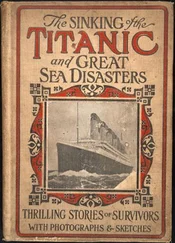In the remaining authoritarian socialist regimes, there is a widespread demand for more self-determination and fundamental freedoms. In the independent republics of the former Soviet Union, the role of the State is once again back on the agenda, and young radicals are reading Bakunin and Kropotkin for the first time. Before the tanks rolled in, the student-inspired demonstrations in China in May 1989 showed the creative possibilities of non-violent direct action and led to calls for autonomous unions and self-management on anarchist lines.
In the West, many on the Right have also turned to anarchist thinkers for inspiration. A new movement in favour of ‘anarcho-capitalism’ has emerged which would like to deregulate the economy and eradicate governmental interference. Although in practice they did the opposite, Prime Minister Margaret Thatcher in Britain tried ‘to roll back the frontiers of the State’, while in the USA President Ronald Reagan wanted to be remembered principally for getting ‘government off people’s backs’. The Libertarian Party, which pushes these ideas further, became the third largest party in the United States in the 1980s.
It is the express aim of this book to show that there is a profound anarchist tradition which offers many ideas and values that are relevant to contemporary problems and issues. It is not intended, like many studies of anarchism, to be a disguised form of propaganda, attacking Marxist and liberal critics alike, in order simply to establish the historical importance and relevance of anarchism. Nor does it offer, as David Miller’s recent work does, an account of anarchism as an ideology, that is to say, as a comprehensive doctrine expressing the interests of a social group. 10
Demanding the Impossible is primarily a critical history of anarchist ideas and movements, tracing their origins and development from ancient civilizations to the present day. It looks at specific thinkers but it does not consider their works merely as self-contained texts. It tries to place the thinkers and their works in their specific historical and personal context as well as in their broader traditions.
Where one begins and who one includes in such a study is of course debatable. It could be argued that a study of anarchism should begin with Pierre-Joseph Proudhon, the first self-styled anarchist, and be confined only to those subsequent thinkers who called themselves anarchists. Such a study would presumably exclude Godwin, who is usually considered the first great anarchist thinker, as well as Tolstoy, who was reluctant to call himself an anarchist because of the word’s violent associations in his day. It would also restrict itself to certain periods of the lives of key individual thinkers: Proudhon, for instance, lapsed from anarchism towards the end of his life, and Bakunin and Kropotkin only took up the anarchist banner in their maturity.
In general, I define an anarchist as one who rejects all forms of external government and the State and believes that society and individuals would function well without them. A libertarian on the other hand is one who takes liberty to be a supreme value and would like to limit the powers of government to a minimum compatible with security. The line between anarchist and libertarian is thin, and in the past the terms have often been used interchangeably. But while all anarchists are libertarians, not all libertarians are anarchists. Even so, they are members of the same clan, share the same ancestors and bear resemblances. They also sometimes form creative unions.
I have followed in this study the example of Kropotkin who, in his famous article on anarchism for the Encyclopaedia Britannica (1910), traced the anarchist ‘tendency’ as far back as Lao Tzu in the ancient world. 11 I am keen to establish the legitimate claims of an anarchist tradition since anarchism did not suddenly appear in the nineteenth century only when someone decided to call himself an anarchist. I would also like to uncover what Murray Bookchin has called a ‘legacy of freedom’ and to reconstruct a strand of libertarian thinking which has been covered or disguised by the dominant authoritarian culture in the past. 12 I have primarily restricted myself to thinkers; poets like Shelley and novelists like Franz Kafka, B. Traven and Ursula K. LeGuin who express a profound anarchist sensibility have been reluctantly left out; and the rich vein of anarchist art is only touched upon. 13 I have been chiefly motivated in my choice to show the range and depth of anarchist philosophy and to dispel the popular prejudice that the anarchist tradition has not produced any thinkers of the first order.
Demanding the Impossible is therefore intended as a history of anarchist thought and action. While it attempts to place thinkers and ideas in their historical and social context, the emphasis will be on the development of anarchism as a rich, profound and original body of ideas and values. It should therefore be of both historical and philosophical interest. It is not written with any propagandist intentions, but my own sympathies will no doubt shine through.
A study of anarchism will show that the drive for freedom is not only a central part of our collective experience but responds to a deeply felt human need. Freedom is necessary for original thought and creativity. It is also a natural desire for we can see that no animal likes to be caged and all conscious beings enjoy the free satisfaction of their desires. Anarchism further seeks in social life what appears to operate in nature: the call for self-management in society mirrors the self-regulation and self-organization of nature itself.
Anarchism has been dismissed by its opponents as puerile and absurd. Authoritarian Marxists echo Lenin and dismiss it with other forms of ‘left-wing’ communism as an ‘infantile disorder’. 14 In this respect, they find company with orthodox Freudians who believe that civilization can only exist on the basis of severe repression of instinctual drives. Anarchists, it is suggested, project on to the State all the hatred they felt for parental authority. A serious moral and social philosophy is thus reduced to a badly resolved parricide wish or dismissed as a form of therapy for an infantile neurosis. It is further claimed that anarchism lacks philosophical rigour and that its appeal is fundamentally emotional.
If these criticisms were accurate, it would be difficult to explain why some of the best minds of this century, such as Bertrand Russell and Noam Chomsky, have taken anarchist philosophy so seriously, even if they have not unreservedly endorsed its conclusions. It would also prove hard to account for the widespread influence of anarchism as a social movement this century, especially in Spain, if it did not offer a rational and meaningful response to specific historical conditions. Far from being utopian or atavistic, anarchism grapples directly with the problems faced by individuals and communities in advanced industrial societies as well as in predominantly agricultural ones.
The continued appeal of anarchism can probably be attributed to its enduring affinity with both the rational and emotional impulses lying deep within us. It is an attitude, a way of life as well as a social philosophy. It presents a telling analysis of existing institutions and practices, and at the same time offers the prospect of a radically transformed society. Above all, it holds up the bewitching ideal of personal and social freedom, both in the negative sense of being free from all external restraint and imposed authority, and in the positive sense of being free to celebrate the full harmony of being. Whatever its future success as a historical movement, anarchism will remain a fundamental part of human experience, for the drive for freedom is one of our deepest needs and the vision of a free society is one of our oldest dreams. Neither can ever be fully repressed; both will outlive all rulers and their States.
Читать дальше












